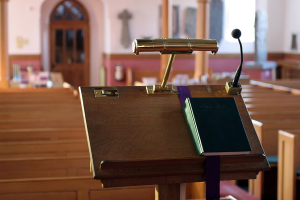Research: Young Adults Skeptical of the Bible but Open to Learn
New research shows that the younger generation in America is less likely to view the Bible as accurate or sacred, but at the same time they are slightly more interested in gaining knowledge about the Bible than older generations.
Based on five separate studies conducted between 2006 and 2009, The Barna Group found that only two out of three Mosaics (adults between the ages of 18 and 25) view the Bible as a sacred or holy book. By comparison, 81 percent of Busters (ages 26 to 44), 89 percent of Boomers (ages 45 to 63), and 90 percent of elders (ages 64 and above) consider the Bible as sacred.
Younger adults also are significantly less likely than older adults to strongly agree that the Bible is totally accurate in all the principles it teaches. Only 30 percent of Mosaics and 39 percent of Busters strongly agree that the Bible is "totally accurate" in all the principles it teaches. The majority of Elders, however, strongly agree with the statement.
Mosaics also are more likely to hold universal religious beliefs than their elders. The majority of Mosaics believe the Bible teaches the same spiritual truths as other sacred texts while only 4 out of 10 Busters and Boomers, and one-third of Elders feel the same way.
David Kinnaman, who directed the analysis of the research, commented that the "central theme" of young Americans' approach to the Bible is skepticism. Young adults question the Bible's history and relevance to their lives, leading them to reject the idea that the Bible contains everything they need to live a meaningful life.
"This mindset certainly has its challenges but it also raises the possibility of using their skepticism as an entry point to teaching and exploring the content of the Bible in new ways," said Kinnaman, president of The Barna Group.
Yet despite the skepticism, Mosaics express the most interest in improving their Bible knowledge. Nearly one in five (19 percent) of 18- to 25-year-olds say they would like to improve their Bible knowledge.
By comparison, only 8 percent of Elders, 12 percent of Boomers, and 14 percent of Busters want to learn more about the Bible.
Christian leaders, Kinnaman suggested, should take advantage of young people's interest in learning about the Bible. Instead of the traditional way of learning, such as attending Bible lectures or training rooms, the younger generation wants to be engaged in interactive learning.
The Christian pollster suggested allowing Mosaics and Busters to ask open and honest questions, and to use creative or technologically stimulating ways to teach them the Bible.
"Their expectations may or may not be entirely healthy, but without considering these issues, the Bible will continue to lose hold on the next generation," Kinnaman maintained.
The report was based on five separate studies each surveying nationwide, random samples of over 1,000 adults. The research analysis was conducted on behalf of the American Bible Society.



























